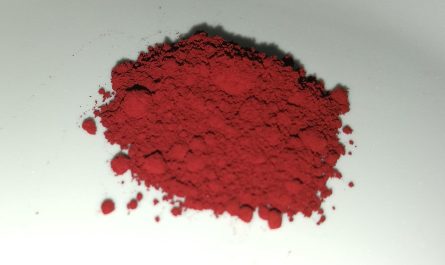What is it?
Met is an essential amino acid that plays many crucial roles in the human body. All organisms cannot produce Met on their own and must obtain it through their diet. Met is one of the building blocks that make up proteins in the body and support many bodily functions.
Roles of Met in the Body
Protein Synthesis – Like all amino acids, Methionine, Met is a component of proteins and is needed for protein synthesis in every cell of the body. Proteins are the basic building blocks that make up muscles, organs, skin, hair and nails, as well as enzymes, hormones and other essential substances. Without adequate Met, the body cannot produce new protein structures or repair worn-out tissues.
Methyl Group Donation – Met is uniquely able to donate methyl groups, which are essential for many biological functions. Methyl groups are needed to produce creatine, carnitine, epinephrine, melatonin and other critical molecules. They are also involved in methylation reactions, which help regulate gene expression and other DNA processes. Methylation also boosts liver health and detoxifies heavy metals and carcinogens.
Antioxidant Support – Met provides antioxidant protection against oxidative damage caused by free radicals. It allows the body to produce glutathione, one of the most powerful intracellular antioxidants. Glutathione defends cells from DNA mutation, lipid peroxidation and other harmful effects of free radical activity. This supports overall health, slows aging and reduces chronic disease risk.
Cognitive Function – Adequate Met is necessary for the synthesis of phospholipids in brain cell membranes. It also allows the production of S-adenosylMet (SAMe), which impacts neurotransmitter synthesis and myelin sheath formation around nerve fibers. These roles help optimize brain health, mood, memory and cognitive abilities throughout life.
Liver Health – Methionine gives the liver support in detoxification pathways by producing glutathione and supporting methylation. It also aids in lipid metabolism in the liver. This helps maintain healthy liver function and protects against issues like fatty liver disease and other chronic conditions.
Role in Energy Production – Met participates in creatine synthesis, which supports energy production in cells through the transfer of phosphate groups. Creatine helps replenish ATP (adenosine triphosphate), the main energy carrier molecule that powers biochemical reactions. Efficient energy metabolism throughout the body relies on adequate amounts of Met.
Symptoms of Deficiency
As an essential amino acid, Met deficiency can develop if intake from dietary sources is insufficient. Signs of deficiency tend to be non-specific but may include:
– Fatigue and weakness
– Loss of appetite
– Nausea
– Aching muscles or joints
– Impaired liver function
– Reduced cognitive performance
– Hair loss
– Skin lesions or rashes
– Decreased growth in children
More severe or prolonged deficiencies can lead to liver damage, bone abnormalities, impaired immunity and neurological issues if not addressed. Deficiency is rarely seen in developed countries but may occur in cases of severe malnutrition, certain medical conditions or genetic disorders affecting Methionine metabolism.
Sources of Met
Good dietary sources of Met generally come from high-quality protein foods, especially animal proteins. Some top Met -containing foods include:
– Eggs
– Fish (salmon, tuna, cod)
– Beef, pork, lamb
– Poultry (chicken, turkey)
– Dairy (milk, yogurt, cheese)
– Seeds (sesame, pumpkin, sunflower)
– Nuts (walnuts, pecans, almonds)
– Beans and legumes
– Soy products
– Oats, rice and other grains
For most people, a balanced diet featuring a variety of these Met -rich whole foods provides adequate intake. Dietary protein requirements vary depending on age, gender and level of physical activity, but Met needs are usually met by meeting overall protein needs. Protein powder supplements can aid athletes or those struggling to eat sufficient high-quality proteins.
As a versatile sulfur-containing amino acid, Methionin is vital to numerous systems, structures and functions in the human body. From protein synthesis to antioxidant defenses, liver health to cognitive function, appropriate levels of Met intake are important for overall wellness, development and disease prevention. Ensuring dietary sources of this essential amino acid through whole foods like eggs, fish, meat and plant-based proteins helps maintain good health and proper metabolic processes.
*Note:
1. Source: Coherent Market Insights, Public sources, Desk research
2. We have leveraged AI tools to mine information and compile it




